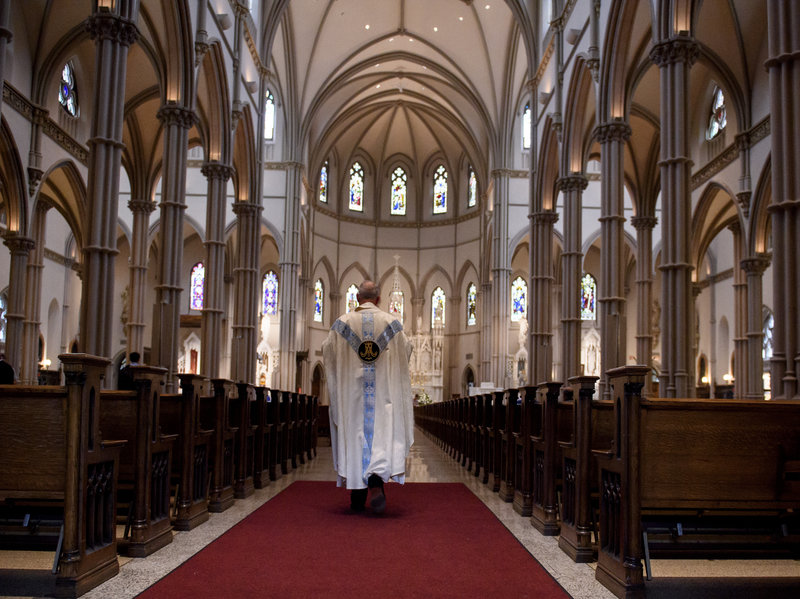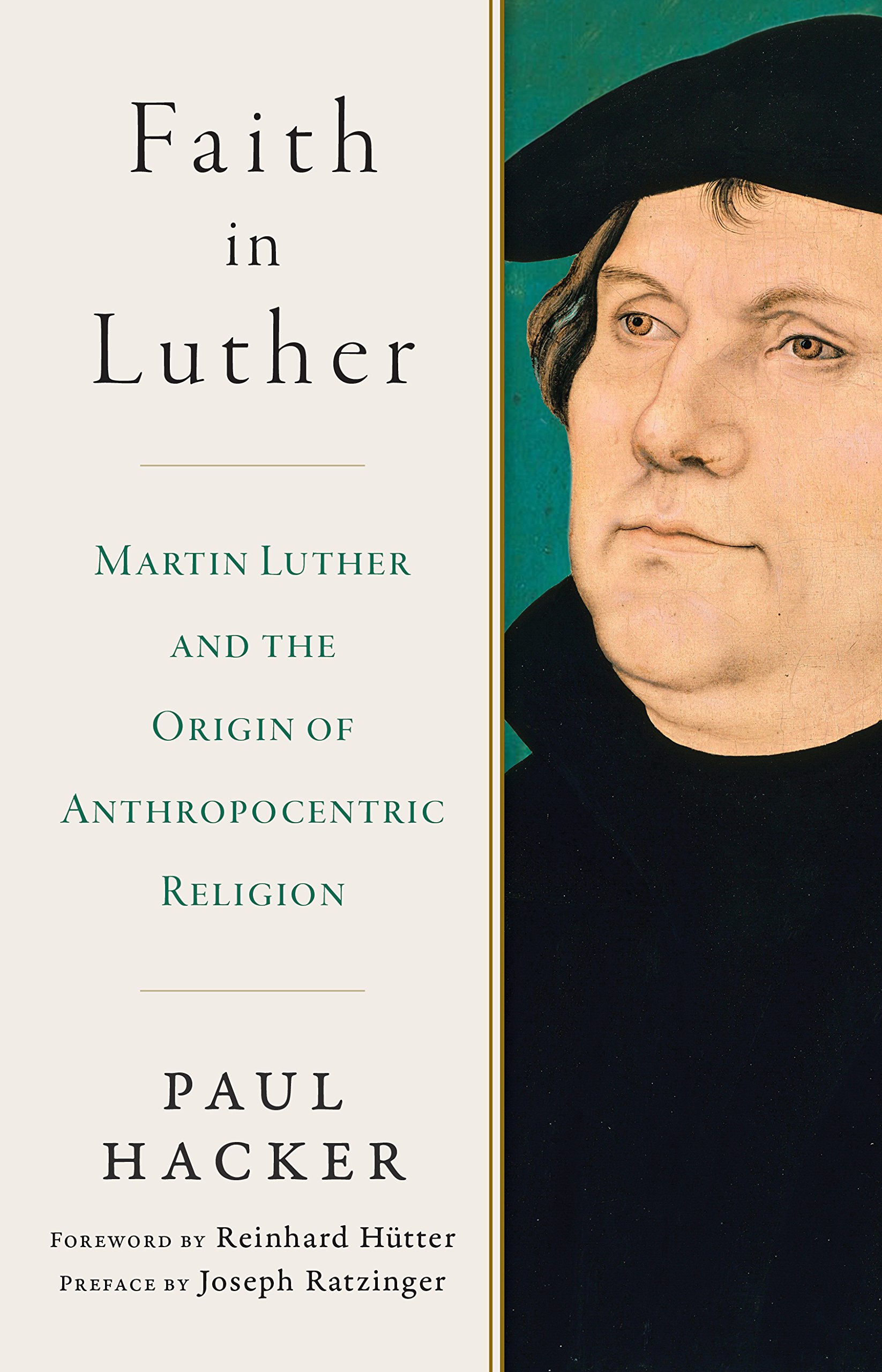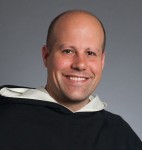

“My journey to Rome was a lengthy one, consuming two-thirds of a normal lifetime. I traveled nearly every highway and byway of Methodism, Southern Methodism, United Methodism, and many forms of Evangelicalism. From Methodism my spiritual journey led me to the via media of Anglicanism, across the Newman Bridge and finally, with the help of a devoted cradle Catholic wife of 25 years, Nilde, my friend Gloria, and the ever-present Virgin Mary, my journey to Catholicism was complete at the age of 65.
The Early Years
As the son of a conservative Methodist minister growing up in a staunchly evangelical environment in the 1950’s, 1960’s, and 1970’s in South Carolina, Catholicism was unimaginable. Culturally, you just never thought about Catholics or what they believed.
In my younger years (1956 to 1963), my father’s ministry was new, vibrant, and exciting. I enjoyed my childhood faith so much that I was confirmed at age nine, although the usual age among Methodists was 12.
Then came the social and civil rights revolution in the Deep South. These were difficult times socially and “the ordeal of change” caused great social and religious stress as I approached my early teen years. Not wishing to buy into the social gospel message sweeping through the Methodist and other mainline churches, my father left the relative security of the Methodist Church to become a Southern Methodist minister.
In my mid to late teens, I began to feel some discomfort with the more fundamentalist viewpoints which tended not to be open to inquiry and reflection. We were Bible-believing Christians, with an Evangelical but not fundamentalist outlook.
Two examples come quickly to mind. The first was the “Bible wars.” I grew up with the King James Bible(KJV) but had some familiarity with the Good News Bible (GNB) and the Revised Standard Version (RSV). Many Southern and Independent Methodist Churches rejected all versions of the Bible except the KJV. In their view, these other Bibles were not the Word of God; they were manufactured by liberals who used modern language to change the word of God. But in my reading of The New Testament Documents: Are they Reliable? by F.F. Bruce, I saw that such views were both illogical and untrue.
The second area of discomfort distinguishing fundamentalism from evangelicalism was the contempt for intellectual inquiry — especially questioning. If Christianity was merely a collection of set propositions, then what was to distinguish it from philosophy? Bible and other religious reading was very important to me, and I read widely from the tenth grade forward. Such inquiry caused many questions and sometimes brought me into conflict with the viewpoints held by my father.
A Teen’s Question about Mary
One of my earliest inquiries around the young age of 15 concerned Mary. As a Bible reader, I noticed that there were passages of Scripture that mentioned Mary outside of the Christmas narrative. My recollections were that, when Mary was mentioned, it only addressed her role in giving birth to Jesus. During my Southern Methodist years, Mary only came out of the closet at Christmas time and then quickly returned to her dusty place with the artificial Christmas tree. Rarely, if ever, was Mary discussed except in anti-Catholic terms.
When I did inquire about the other Marian verses in the Bible, my early attempts to do so provoked one of three responses: stone-faced silence, anger, or an invitation to visit some liberal or Catholic group of idol worshipers. I wondered about Mary’s role beyond just giving birth to Jesus. My first serious theological question concerned the Incarnation. Jesus came and dwelt among us. I felt that Mary was more than just a vessel. Why did God choose Mary? She must have been a very special person. It seemed to me that you could not really talk about the Incarnation and ignore Mary’s words in the Annunciation (see Luke 1:26-35). In those years, Mary was just there, latent in the back- ground, but providentially there.
The Search for a Credible Christianity
One of my father’s last churches was in a suburb of Jacksonville, Florida. It was an “Independent Southern Methodist Church” — a church even more conservative than my experiences with the Southern Methodist church.
Although I ended up assisting my father during his last three months and even filling in for him in my early 20’s, such fundamentalism was bewildering to me. It seemed to have little to offer, and the blatant racism present among some of the church membership was likewise unsettling.
When I was 22, our family moved back to Folly Beach, South Carolina, a slender barrier island twelve miles south of Charleston where I had spent much of my childhood and high school years. I had interrupted my college education while living in Jacksonville, Florida but resumed it after returning to Charleston. My chief desire at this time was to have a credible, non-fundamentalist faith that could engage both mind and heart.
The “New Evangelical” authors fed my intellect and made Christianity believable to me. They gave me reasons to believe that were theologically and intellectually more convincing than what fundamentalism offered. C.S. Lewis demonstrated that deep learning and Christianity were compatible with each other. Donald Bloesch made reason and spirit come alive for me. Bernard Ramm introduced me to a serious reading of theology and to Karl Barth. F.F. Bruce made Bible history and theology interesting. His works, The Canon of Scripture and The New Testament Documents: Are They Reliable? opened many other vistas of Bible history and scriptural development. I encountered there the concept of oral tradition.
Some Dormant Years
Around this time, I met Rev. Earnest Dugan, a Methodist minister who ran a mission similar to those you might see in the Salvation Army. He engaged my mind while stressing the need for service to others. His sermons were inspiring and his explanation of Scripture was intellectually and spiritually rewarding.
Pastor Dugan presided over my marriage to a young lady who was Episcopalian, although I don’t recall ever visiting her church. We were married at the Folly Beach United Methodist Church in 1976. My new wife and I soon moved to new employment in southern Delaware. She worked in an allied health occupation while I did grants and governmental relations. We both drifted away from religious practice. It just happened, and I cannot really explain why. Those were religiously dormant years for both of us. It was a difficult marriage, and six years later it ended. Being suddenly divorced and single was difficult.
The Potter’s House
I was newly living in Washington, D.C. and attending graduate school. As I worked my way through earning my Master’s degree in Legal Studies, I found myself involved on the fringes of urban ministry, helping poor people. One of my hangouts was the Potter’s House coffeehouse, a ministry of the Church of the Savior, located on Columbia Road in the heart of the Adams Morgan neighborhood.
The Potter’s House was much more than a coffeehouse. It was a religious bookstore, a place of lively local entertainment, and seekers of every description — even agnostics and atheists — gathered there to share and talk. The Potter’s House re-connected me to religious reading, talking, and reflection. It fed my heart and mind.
The Potter’s House was the gateway to my religious renewal, serious intellectual engagement with theology, and reaching out to others with a sense of service that goes with a lived faith. I read my first Catholic book there, The Wounded Healer by the noted Dutch Catholic Henri Nouwen. This was followed by his book Reaching Out. I strongly identified with Nouwen’s pastoral theology and focus on serving others.
The Episcopal Experience
In Washington D.C., I found a much more open religious environment. A work colleague introduced me to the Falls Church Episcopal — the historic church of George Washington in Falls Church, Virginia, a city just west of metropolitan Washington, D.C. I had earlier read Robert Webber’s little book, Evangelicals on the Canterbury Trail. Through Robert Webber and the witness of a friend, I discovered that one could be Evangelical and liturgical at the same time. At this time, in the mid-1980’s, Falls Church Episcopal was presided over by Rev. Dr. John Yates, a charismatic Evangelical with a decidedly Anglican focus. I fell in love with liturgical Christianity as found in the Book of Common Prayer.
I recall with fondness my visits to the Episcopal National Cathedral of Saints Peter and Paul in northwest Washington, D.C. The music and liturgy was astoundingly beautiful. It was not long, though, before I discovered that there were many ways of being Episcopalian and that there was a tension between traditionalists and modernists contending for the heart and soul of the Episcopal Church.
The Episcopal Church leadership nationally and in many of its parishes in Washington were of a decidedly liberal bent. I found that, in many of these parishes, you could believe almost anything and still be Episcopalian. The church of John Yates held a minority position in that respect. Most troubling to me was the open talk of blessing gay relationships and ordaining gay women and men into the priesthood.
I found these theological events deeply troubling. How was it that a bishop such as John Shelby Spong could denounce key Christian beliefs reflected in the historical Episcopalian creeds and remain an Episcopalian in good standing? My thought began to be centered on what constitutes a real church. When does a church cease to be a church of the Creed? As I watched in horror this undermining of the Episcopal and other mainline churches, my question was, What should I do? Where can I go? Where is authentic belief and worship to be found?
A friendship and the Sacred Heart Years
My next steps on the journey were eight years of courtship and eventual marriage to a cradle Catholic named Nilde whom I met at The Potter’s House in 1982. Our long friendship and courtship enabled us to safely talk and share. We read and talked together about life and especially about our respective faiths. I was the intellectual one; Nilde was more spiritual. We gravitated towards each other in the Potter’s House friendship. Every week we met at the same little table to read, talk, and enjoy the quiet piano lounge music.
My every Friday coffeehouse friend introduced me to the inside of a Catholic church, the Shrine of the Sacred Heart in northwest Washington. It was strange yet beautiful, a bit bewildering to my then Protestant sensibilities. Statutes of Mary were everywhere. She was beautiful, but the Rosary made no sense to me. Devotion to the Rosary would come some twenty years later.
During this time, John Paul II was in the prime of his papacy. The “Catholic moment,” so to speak, had arrived, as Richard John Neuhaus and numerous others became Catholic converts, drawing many into the Catholic orbit — including me.
Week after week, I found myself in Nilde’s company at the Shrine of the Sacred Heart Catholic Church. It was, and still is, run by a group of Capuchin Franciscans. They received me openly, never asking me much about my faith. They just fed me with friendship and fellowship.
Those I remember most were Brother Eric, who later became Father Eric, and Father Don, who is now Bishop of Mendi in Papua, New Guinea. We spent countless hours talking about faith and Catholicism. Catholic belief and practice seemed overwhelming to me at first. I often wondered if I could be good enough to be Catholic; intellect and heart were not in line with each other at this time. But I kept going there, and no one pushed me away.
Nilde and I did urban ministry and youth ministry together at the Shrine of the Sacred Heart. Soon we found ourselves in charge of thirty to forty young people of largely Central American heritage. Many of these young boys and girls were sent here for safety during the Central American wars of the 1980’s. Some had relatives, but for many the Church became their caretakers, their mothers and their fathers. Nilde and I became their “Padrinos,” although we ourselves did not have children. Thirty of these youth formed half of our wedding party when Nilde and I married in October of 1990. I loved the Central American culture. I too was away from my South Carolina family, so these young people became my family.
Our devotion to Central Americans extended beyond the Washington, D.C. experiences. Nilde sponsored a young Honduran girl of eight in the early 1980’s. Over time, I became involved in the care packages we sent to Maria, and Nilde, with her mother, visited Maria in 1987. After our marriage, I became much more involved with Maria and her little community. The Honduran people are uniformly poor but deeply spiritual.
Having no children of our own, Maria, and eventually her two children, became our foster family from afar. Over thirty years, we made eight trips to Honduras. We adopted Maria’s little community of fifty houses, known as Rancho Alegre. Through fundraising, we brought electricity to their little village in the year 2000. We also reached out to the churches of her community and its 250 residents with medicines and other works of charity.
In the Fall of 2015, we had the good fortune of helping to re-build the church of our foster daughter at Rancho Alegre through receipt of a $6,000 foundation grant. at church was re-dedicated this year on the Feast of Corpus Christi.
The Ratzinger Encounter
The next important step along the road to Catholicism was my accidental discovery of Joseph Cardinal Ratzinger (now Pope Emeritus Benedict XVI) in a second-hand Washington bookstore. Washington was a hotbed of religious controversy in the 1980’s. Hans Kung had been declared to no longer be a Catholic theologian and Father Curran was dismissed from his teaching position at Catholic University. I remembered that Joseph Ratzinger had something to do with this. The Ratzinger Report caught my attention, and it was only fifty cents.
Unknown to the cardinal, we became intellectual friends after reading this and another tome entitled The Theology of Joseph Ratzinger, also purchased in that same Second Story Books for a mere two dollars. The issue then and now revolved around what makes a church authentic and true, as distinguished from a social club or debating society. His book Called to Communion, a series of short essays on ecclesiology, was important for me. These essays addressed the critical question of what it means to be a Church.
Ratzinger was Christ-centered in his theology and demonstrated an extraordinary command of scriptural interpretation — something that any serious Anglican evangelical could appreciate.
One of the most unforgettable moments of my life occurred when Nilde and I were in Rome on a religious tour in 2007. The highlight of our visit to the Vatican was a chance to greet Pope Benedict during a Wednesday audience in 2007.
Mary once Again
Remembering my earlier focus on the Incarnation, I began to inquire anew about Mary. The first explicitly Marian book I read was Mary for All Christians by the Anglican theologian, John Macquarrie. He confirmed my earlier suppositions. Mary made sense, at least from an Anglican and ecumenical perspective. My suspicions were confirmed that Mary belonged to the economy of salvation. Theological appreciation, though, was far from constituting Catholic devotion.
Mary’s influence grew gradually. Ratzinger’s Daughter Zion, a small book of essays on Mary, convinced me that Mary must be important in any Christian church, Catholic or otherwise. I also read Our Lady and the Church by Hugo Rahner and Mary for Todayby Hans Urs von Balthasar. These works impelled me to undertake a deeper, extended study of Mary and Marian doctrine in Catholic and ecumenical perspectives, eventually leading to my writing The Virgin Mary — A Resource Guide for Laypersons.
Good Enough to be Catholic?
So why wasn’t I Catholic yet? The short answer to this question might be found in a quotation from the philosopher Renan, who said, “No one has a religion until they have lost it.”
That quote embodies my forty-year journey to a faith that is credible to both heart and mind.
A Christianity that engages the heart but denigrates the mind is deficient. I felt uneasy. In order for Christianity to be credible, it has to offer something more than fire insurance. I had lost my fundamentalism and visited varieties of Evangelicalism, then the American Episcopal Church — only to discover that what I thought was an authentic church was in fact something else.
At the same time, I was wary of exchanging Protestant fundamentalism for Catholic fundamentalism. Father Francis Sullivan, S.J. helped me to understand that, despite a “Deposit of Faith,” our knowledge is partial. There are open questions whose resolution may only emerge gradually. That was reassuring.
I have a special affinity to Cardinal Dulles, who wrote of his conversion in 1946: “The only sufficient cause for any conversion, is, of course, divine grace, for which man can give no ex- planation.” But we both agreed that one can describe how God influences or acts through others to impact our will.
For nearly thirty years, I was a fellow traveler within the Catholic orbit. Through deep reading and participation as an interloping “guest,” I simply ceased to be Protestant. Like Cardinal Newman, I read myself into a Catholic mindset.
But I could not fully own my Catholicism. There were barriers. My former wife could not be located, so I could not proceed with the annulment process and pursue being received into the Catholic Church. And I constantly wondered if I was “good enough” to be Catholic. It is surprising how such a doubt can be a barrier for someone considering becoming Catholic.
Seeking a New Spiritual Home
We loved Washington, D.C., but changes in life are inevitable. Nilde and I moved to Miami in 1993 so she could be with her parents during their final years, because Nilde was an only child. At first, we attended Saint Dominic’s Catholic Church in Miami, since that was where Nilde’s parents lived. It was also Nilde’s parish church growing up. We went there every weekend because I began singing in a local restaurant near their home every Saturday. Singing from the American song book was a carry- over from my Washington days, having spent countless hours in Washington’s piano lounges. After visiting several Catholic parishes closer to our home in Aventura, Florida, we eventually found a permanent home at St. Matthew Catholic Church.
Mary for a Third Time
Following Nilde’s recovery from spinal cancer and regaining her ability to walk in 2007, we began volunteering for Memorial Regional Hospital and became members of the Legion of Mary.
Our devotion to Mary grew steadily, and I enjoyed the supportive fellowship of my Legion of Mary friends. As my devotion to Mary increased, I wondered where she was leading me.
At the Legion of Mary, I found a special apostolic partner in Gloria Ippolito. Providence joined us together in a ministry of faith and reaching out to others — especially at funeral wakes.
But my journey was not quite over. There was my former marriage still to be dealt with.
After years of searching, I did locate my former wife. The process moved quickly throughout 2014, and the marriage was declared null on May 5, 2015. I went through RCIA a second time.
Now I finally felt that I could own my Catholicism. The reality is that Mary brought me home, offering me the fullest expression of Christian truth — the Catholic Church. And my wife, Nilde, was enduringly important too. She was my Monica who prayed constantly for her famous intellectual son, Augustine.
The riddle of my forty years of wandering and deep reading was answered. All that study suddenly came into focus one September day in 2014. I was asked by our Legion of Mary president to give a talk, a study reflection, at the regional Legion of Mary meeting. The topic was John the Baptist. As I pored through the mass of materials I had gathered, I asked Mary for help. What was the message for me? What was the message for my audience of fifty to seventy other Legion members?
One of the amazing things I discovered was that John the Baptist was the patron saint of my birthplace, Charleston, South Carolina. The mission of John the Baptist was simply to declare the word, to make straight the ways of the Lord and announce that salvation was coming. John the Baptist is now my Patron Saint too.
Mary gave me one more affirmation through a special Providence of God. June 5, 2015 marked the ten-year anniversary of my mother’s passing. While planning for a Pilgrim Virgin Visit ceremony in my home to mark this occasion, I ran across something I thought had been lost forever. It was a beautiful icon prayer card of Our Lady of Joyful Hope and Our Lady of South Carolina. The prayer card and the story behind its creation recalled the motto of my home state: “While I breathe, I hope.” I had often quoted this state motto as I awaited what I hoped would be a blessing of my marriage to Nilde and full reception into the Catholic Church. How incredible were the graces of Mary throughout this long journey!
My formal reception into the Catholic Church and convalidation of my marriage to Nilde Martinez took place on June 29, 2015 on the Feasts of Saints Peter and Paul. My confirmation took place at the Cathedral of Saint Mary in Miami, Florida.
A Second Call
I am determined not to refuse a second calling to declare the word. That day in September of 2014 was a seminal moment. Mary and John the Baptist have called me to truly declare the word. I had been doing this increasingly through the delivery of short devotions and presiding at funeral wakes. Each time I did these things I felt affirmed by the Holy Spirit to keep doing them.
This affirmation led me to think about what I should really be doing. During some of my trips to Honduras, I discovered people in remote areas of Honduras who did not have regular access to a parish church and the sacraments. The Honduran Catholic Church filled in these gaps with Delegates of the Word, something similar to deacons when priests were not available. Delegates of the Word. That concept resonated with me.
I needed a platform to host my writing, speaking, and special works of charity, so I created the Delegates of the Word organization to be the means for doing my apostolic work. Through this organization, I am reaching out to others by writing, speaking, and teaching in whatever venue that might be open. I do not know where this will lead, but at a minimum, Delegates of the Word can serve as a means for me to unpack forty years of constant Catholic and ecumenical study for laypersons and anyone else who might care to listen.
Was the Journey Worth it?
Non-Catholics might wonder, what really made you Catholic? What about your Evangelical and Anglican heritage? I think it would be accurate to say that I read and studied myself into the Catholic Church.
The second factor has to do with ecclesiology. What is a true Church as distinguished from a club or a debating society? What I discovered was that the Catholic Church has the fullest expression of cumulative truth contained within its history, tradition, worship, and theology. As Thomas Howard said, the Catholic Church is “Evangelical plus.” Authority and ecclesiology are linked together.
Intellectually, Benedict XVI and many of the theological giants of the Ressourcement movement that ushered in Vatican II informed my mind and spirit. It is especially true of Hans Urs von Balthasar, Henry de Lubac, and the Jesuit theologian Francis Sullivan.
Long before becoming officially Catholic, Mary was there as a tiny mustard seed in my consciousness. She was the cause of my first serious theological question. Over time, she gradually grew larger, and through my eight years of Legion of Mary affiliation, she, Nilde, and my apostolic friend, Gloria, led me through the final journey.”
Love,
Matthew










